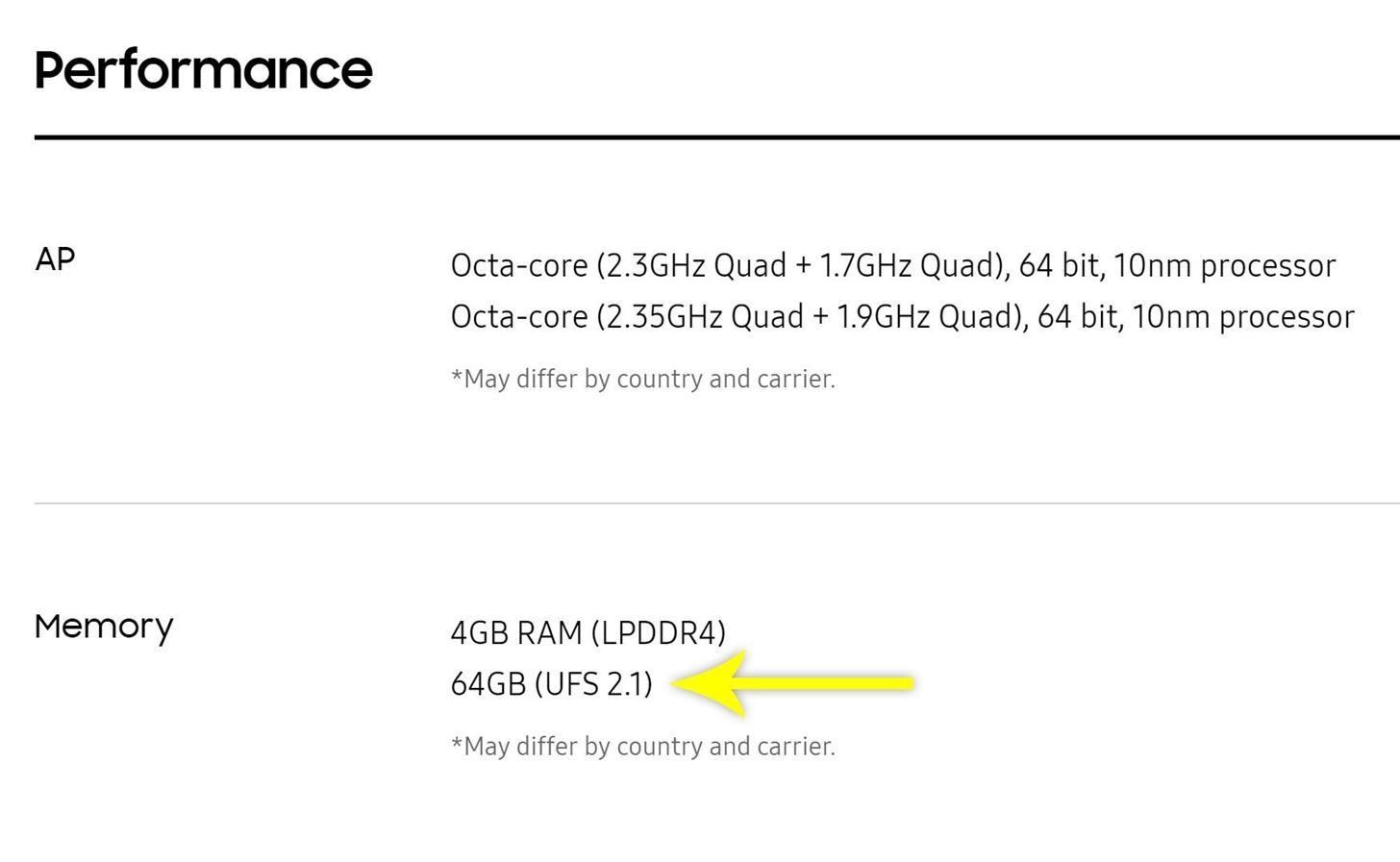All Galaxy S8 models apparently weren’t created equal. According to numerous user reports, it appears that Snapdragon-powered Galaxy S8 variants are using an older flash storage standard than what Samsung was originally advertising.
All Exynos-powered variants of the Galaxy S8 and S8+ appear to be using the new UFS 2.1 standard that Samsung initially cited in promotional materials for the phones. Even Galaxy S8+ models with Snapdragon processors are using the new standard. But the Snapdragon variants of the regular Galaxy S8 seem to be using outdated UFS 2.0 technology.
After XDA user lch920619x brought the situation to light, Samsung’s official Galaxy S8 and S8+ site was quickly changed. A screenshot taken by the XDA user one week ago showed Samsung proudly boasting of UFS 2.1 storage, but since this news broke, the page now makes no reference to UFS standards at all.
Although Samsung has yet to comment on the storage situation, the fact that references to UFS 2.1 have been removed from the official site is as good as a confirmation. That’s supplemented by over 100 Reddit users reporting their phones’ storage types and model numbers, which all seem to be in line with the theory that Snapdragon-powered Galaxy S8 models are using inferior storage chips when compared to all other Galaxy S8 and S8+ models.

This news should be particularly significant to our US-based readers, as all North American variants of the Galaxy S8 are powered by Qualcomm’s Snapdragon 835 processor. This means that if you bought your Galaxy S8 in America, your phone is using a slower storage chip than you might have thought.
Not that the differences are all that noticeable. Even if you did a side-by-side comparison of a UFS 2.0 device and one using 2.1, you’d be hard pressed to notice any visible differences in performance. Both standards are so insanely fast that they’ve effectively eliminated storage memory as a block for the time being.
That said, we have to acknowledge that 2.1 is slightly faster than its predecessor (up to 300 Mbps quicker in theory), but in reality, this won’t really impact the user.
But the real story here is that Samsung was using UFS 2.1 as a selling point on its generic Galaxy S8 and S8+ landing page even though some of these devices weren’t actually using the technology. From a legal perspective, their inclusion of a note saying the specs “May differ by country and carrier” likely has Samsung covered against false advertising suits, but that doesn’t make it right.
Thankfully, the marketing situation has been rectified, so at least people who buy the phones in the future won’t be misled about what they’re getting.
But why exactly is Samsung selling phones with UFS 2.0 storage? Did they run low on 2.1 chips before the Galaxy S8’s launch, or is there another reason behind it? If you’ve got any thoughts on this whole ordeal, make sure to share them with us in the comment section below.
Hot Deal: Set up a secure second phone number and keep your real contact details hidden with a yearly subscription to Hushed Private Phone Line for Android/iOS, 83%–91% off. It’s a perfect second-line solution for making calls and sending texts related to work, dating, Craigslist sales, and other scenarios where you wouldn’t want to give out your primary phone number.
“Hey there, just a heads-up: We’re part of the Amazon affiliate program, so when you buy through links on our site, we may earn a small commission. But don’t worry, it doesn’t cost you anything extra and helps us keep the lights on. Thanks for your support!”










